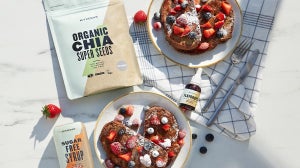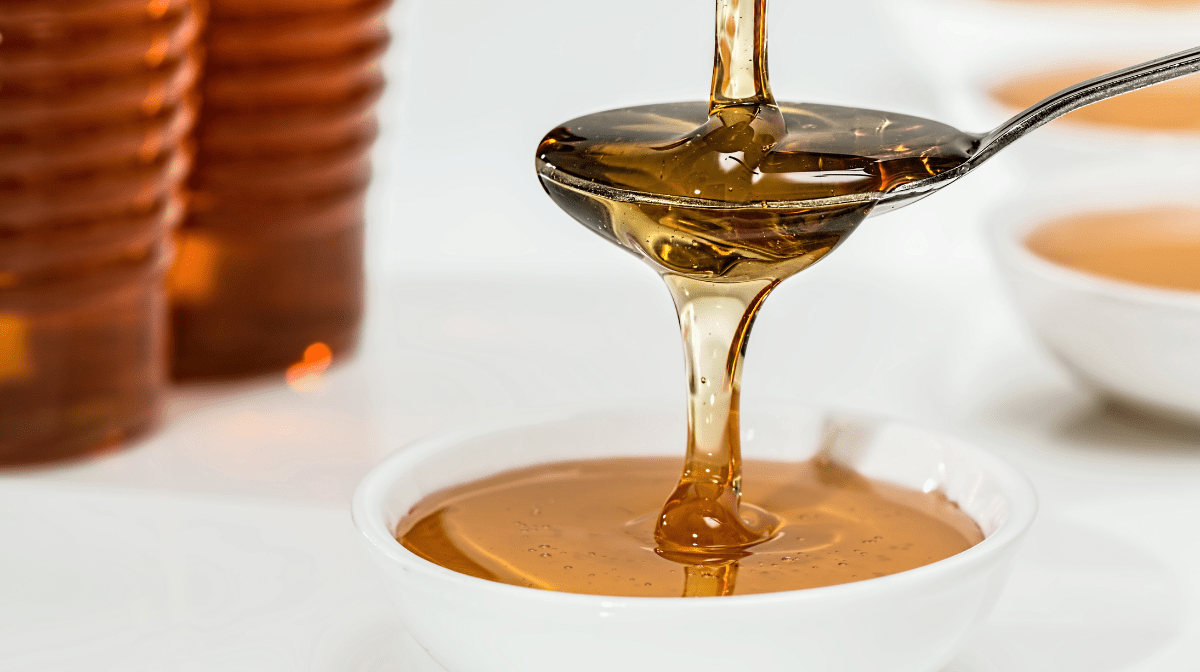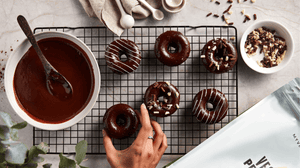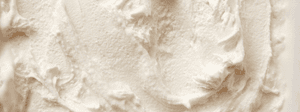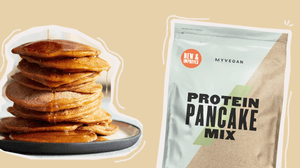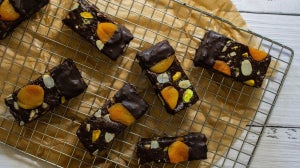
Honey is ‘the natural sweet substance produced by honey- bees from nectar of blossoms’. This sweet and sticky substance is used as a food additive, as a spread, and as a natural sweetener for hot beverages. Honey is a controversial topic in the vegan community, with some vegans avoiding honey completely, whilst other vegans include it in their diet.
How Is Honey Made?
- The first step in making honey is finding flowers that produce nectar; worker bees can fly up to 5km to find the right kind of flower. The bees suck up the nectar and store it in a special pouch.
- During the nectar extraction process, pollen can attach itself to the legs and furry bodies of the bees. This means the pollen can be carried to a different flower or plant as the bee continues its journey. This pollen will fertilise female flowers, which is needed for the growth of new plants.
- Once the bees have returned to the hive, the nectar is passed along to young bees, which process the nectar, converting it to honey. When ready, the honey is deposited at the top of one of the honeycombs that form part of the hive.
- The bees then nurture the honey until ripe, creating warm air with their wings. Once ready, the honeycomb is covered in beeswax, which creates an airtight seal.
- At this point, beekeepers remove the honeycomb and leave the honey to naturally decant from its wax seal. Most commercially prepared honey, is then filtered and packaged before reaching supermarket shelves.
Why Don’t Vegans Eat Honey?
- Honey is produced by bees and stored in hives that double as a home for the bees. This means honey is counted as a product derived from animals, therefore, many vegans do not include honey as part of their diet.
- Many vegans tend to shy away from mass-produced products, including commercially produced food. Honey can be made in small batches however; the majority of honey is produced commercially. Generally, this doesn’t align with the ethics and principles of many vegans.
- Bees help to pollinate flowers and other wildlife, having an overall positive effect on the environment. However, some unethical practices still remain, with farmers culling hives after harvesting the honey they need. This leads to the unnecessary death of the bees, as the hive is needed to maintain the colony.
- The queen bee is the heart of a bee colony – however, their importance means that there is a thriving trade for breeding and selling of queen bees. Vegans do not believe in keeping animals in captivity, especially if the animals are being kept for the benefit of humans.
- Bees can fly up to 5km to try and find the flowers they need – whilst this may not seem that far, for a tiny bee this can be an exhausting journey. Bees can use the honey they’ve collected as an energy source however, if the honey has been removed from the hives, the bees have no food available once returning home.
Why Do Some Vegans Still Eat Honey?
- Concern for animal welfare is at the crux of veganism. However, whilst honey is derived from animal products, some vegans continue to eat honey as the harvesting process is not supposed to cause harm to the bees.
- Some vegans still eat honey that is local or homemade as the production process is slightly different compared to commercial honey. Furthermore, local bees may be helping to pollinate local wildlife, and maintenance of local wildlife may be an important factor for some vegans.
- Bees have been threatened with extinction for the last few years. Some vegans eat honey to try and support bee populations – increased demand for honey means more bees and hives are needed. In turn, this means a greater number of hives being set up, and a greater number of bees being nurtured.
Vegan Alternatives To Honey
Honey is usually used to provide sweetness in a recipe; it is also naturally sticky, so is sometimes added for its binding properties. Vegan alternatives to honey include:
Myvegan Flavdrops
Maple Syrup
Many vegan baking recipes use maple syrup instead of honey, as they are both a similar sweetness and consistency. If a recipe calls for honey, equal quantities of maple syrup can be used instead.
Agave Nectar
This natural sweetener is extracted from the leaves of cactus plants. It has a more neutral flavour than maple syrup but is slightly thinner than honey; if baking with agave, try adding an extra spoon or two of dry ingredients to balance the texture.
Myvegan Sugar Free Syrup
Date Syrup
Another natural sweetener, date syrup is made by boiling and pureeing dates, before water is added to create the right consistency and texture. This syrup is usually thicker and stickier than honey, and works well when a stronger sweet flavour is needed.
Take Home Message
This article is a summary of the honey-making process, as well as the reasons why vegans do or don’t eat honey. Like most dietary choices, the decision to eat honey or not should be made on an individual basis.
FAQs
Is it okay for vegans to eat honey?
Like most things, deciding whether to eat honey or not should be an individual decision. Veganism and plant-based diets shouldn’t feel restrictive, so please make a decision according to personal needs.
Why do vegans avoid honey?
There are many reasons that vegans avoid honey however, the main reason tends to be that honey is made by animals (bees).
Why isn’t honey vegan?
Honey is an animal-based product therefore most vegans do not consume honey.
Is it okay to eat honey on a plant-based diet?
A vegan diet means avoiding animal products completely and this often extends to lifestyle as well. A plant-based diet usually has a greater emphasis on natural, ‘whole’ foods and often plant-based eaters do eat honey, as it is considered to be a natural food.
What are some of the alternatives to honey?
There are plenty of vegan alternatives to honey – these include maple syrup, agave nectar, date syrup and of course Myvegan Flavdrops and Myvegan sugar-free syrup.
- https://www.vegansociety.com/go-vegan/why-go-vegan/honey-industry?gclid=Cj0KCQiA4aacBhCUARIsAI55maGDbTBjpYApcsPYBwA1o_3gOswwThDLgNt0KSLrMmXZMVZLdKpXAy8aAskMEALw_wcB
- https://www.peta.org.uk/blog/honey-isnt-vegan/?utm_source=PETA%20UK::Google&utm_medium=Ad&utm_campaign=1120::gen::PETA%20UK::Google::s-grant-awa-dsa::::searchad&gclid=Cj0KCQiA4aacBhCUARIsAI55maGcJc0yO0JyDL37Ouo92PYqQNI0NuWu6_PNOP7r_ofVSGfIQzKXqecaAicqEALw_wcB
- Molan, P. Authenticity of honey. Food Authentication; Springer: Boston 1996

Related Articles
